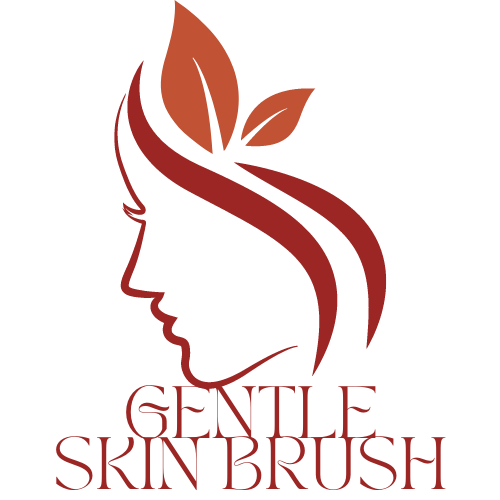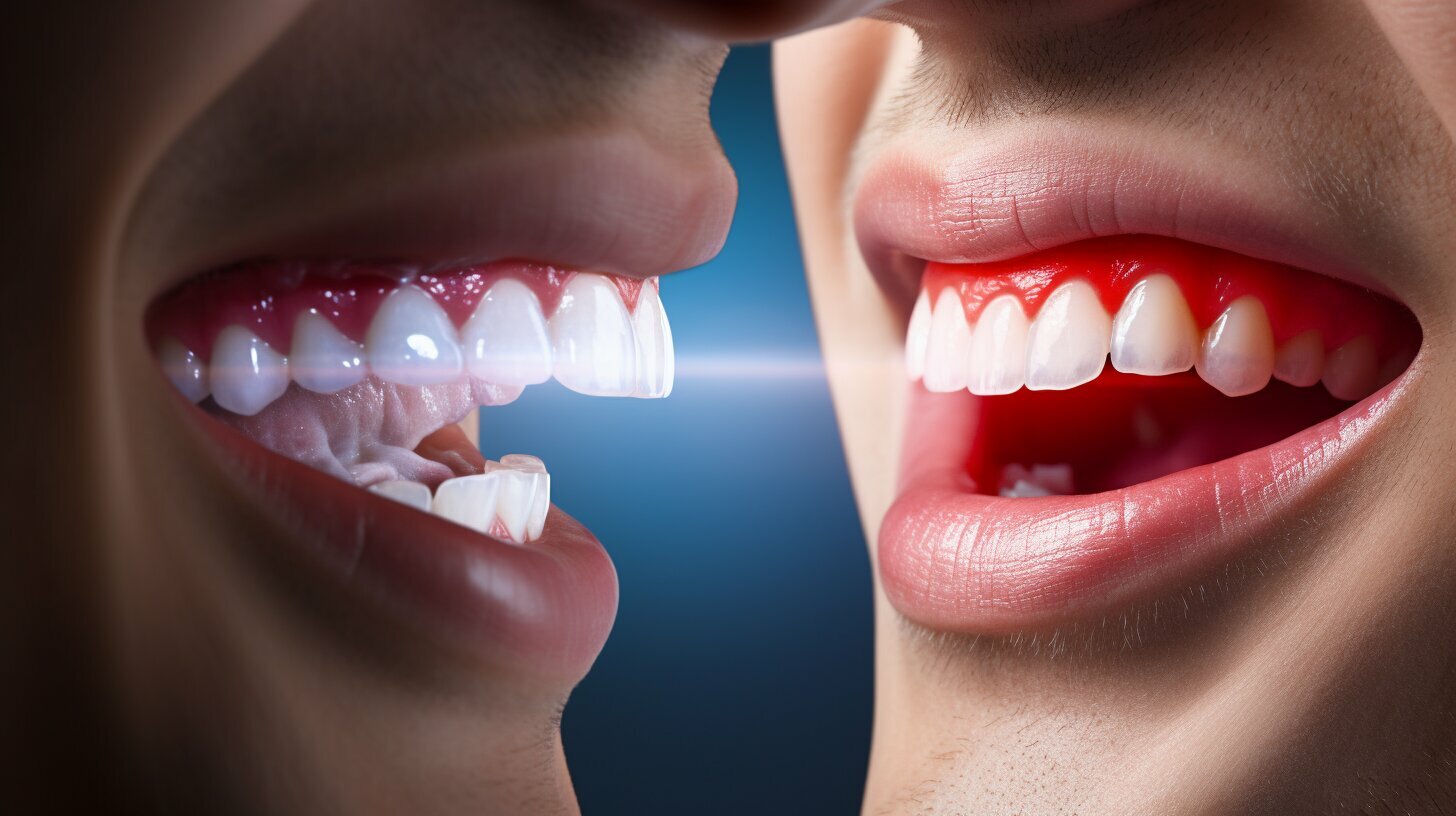Tooth pain can be a debilitating experience, but does brushing teeth offer any relief? In this article, we will uncover the facts and explore how maintaining oral hygiene impacts your dental health.
Contents
- 1 Understanding Tooth Pain and its Causes
- 2 The Importance of Oral Hygiene for Tooth Pain Prevention
- 3 Can Brushing Teeth Provide Immediate Relief for Tooth Pain?
- 4 Additional Remedies for Alleviating Tooth Pain
- 5 The Role of Preventive Dentistry in Tooth Pain
- 6 Conclusion
- 7 FAQ
- 7.1 Does brushing teeth help with tooth pain?
- 7.2 What are the causes of tooth pain?
- 7.3 What are some remedies for tooth pain?
- 7.4 How can I prevent tooth pain?
- 7.5 Can brushing teeth provide immediate relief for tooth pain?
- 7.6 Are there any additional remedies for tooth pain?
- 7.7 What is the role of preventive dentistry in managing tooth pain?
- 8 Source Links
Key Takeaways:
- Proper oral hygiene, including regular brushing and flossing, is essential for preventing tooth pain.
- Brushing teeth may not provide immediate relief for tooth pain but can contribute to overall dental health.
- Additional remedies for alleviating tooth pain include applying ice, using over-the-counter pain medication, rinsing with saltwater or hydrogen peroxide, and natural remedies like garlic or thyme mouthwash.
- Preventive dentistry, such as regular dental check-ups and cleanings, plays a crucial role in managing tooth pain and maintaining oral health.
- Seek professional dental care for severe or persistent tooth pain.
Understanding Tooth Pain and its Causes
Before we delve into whether brushing teeth helps with tooth pain, it’s crucial to understand the causes behind tooth pain and explore dental remedies that can provide relief. Tooth pain, also known as a toothache, can be a result of various factors, including cavities, receding gums, nighttime grinding, and cracked teeth. These conditions can cause sensitivity, sharp or throbbing pain, and discomfort while eating or drinking.
To alleviate tooth pain, there are several dental remedies that can provide relief. One common remedy is applying ice to the affected area, which can help reduce inflammation and numb the pain temporarily. Over-the-counter pain medication, such as ibuprofen or acetaminophen, can also be effective in managing tooth pain. Rinsing the mouth with saltwater or hydrogen peroxide solution can help soothe gum inflammation and kill bacteria, providing some relief.
“Tooth pain can be quite distressing, but there are remedies available to alleviate the discomfort. Applying ice to the affected area and taking over-the-counter pain medication can help provide temporary relief.” – Dr. Emily Johnson
In addition to these remedies, natural alternatives like garlic or thyme mouthwash can offer relief due to their antibacterial properties. However, it’s important to note that while these remedies can provide temporary relief, they are not a substitute for professional dental care. It’s recommended to seek professional help if the tooth pain persists or worsens.
| Dental Remedies for Tooth Pain | Toothache Relief |
|---|---|
| Ice application | Temporary numbness and reduced inflammation |
| Over-the-counter pain medication | Effective in managing tooth pain |
| Saltwater or hydrogen peroxide rinses | Soothes gum inflammation and kills bacteria |
| Natural remedies (garlic or thyme mouthwash) | Antibacterial properties can offer relief |
The Importance of Oral Hygiene for Tooth Pain Prevention
Maintaining proper oral hygiene is not only essential for a beautiful smile but also plays a crucial role in preventing tooth pain. In this section, we will delve into the importance of oral hygiene for tooth pain prevention and discuss healthy dental practices you can incorporate into your daily routine.
One of the key aspects of oral hygiene is brushing your teeth at least twice a day with a fluoride toothpaste. Brushing helps remove plaque, which is a sticky film of bacteria that forms on the teeth. If not removed regularly, plaque can lead to gum disease and tooth decay, both of which can cause tooth pain. Remember to brush all surfaces of your teeth, including the front, back, and chewing surfaces, using gentle circular motions. Don’t forget to replace your toothbrush every three to four months or sooner if the bristles become frayed.
In addition to brushing, flossing is crucial for maintaining oral hygiene. Flossing once a day helps remove plaque and food particles from between the teeth and along the gumline, where a toothbrush can’t reach. Proper flossing technique involves gently sliding the floss between each tooth, wrapping it in a C-shape, and moving it up and down to remove debris. By incorporating flossing into your daily routine, you can reduce the risk of gum disease and tooth pain caused by plaque buildup.
Create a dental care routine:
- Brush your teeth at least twice a day with fluoride toothpaste.
- Floss daily to remove plaque and debris from between the teeth.
- Use a mouthwash that contains fluoride to strengthen the teeth and prevent cavities.
- Avoid tobacco products, as they can contribute to gum disease and tooth pain.
- Limit your consumption of sugary and acidic foods and drinks, as they can erode tooth enamel and increase the risk of cavities and tooth sensitivity.
By following these healthy dental practices, you can maintain optimal oral hygiene and reduce the likelihood of experiencing tooth pain. However, it’s important to note that if you do experience persistent or severe tooth pain, it’s best to seek professional dental care. A dentist can properly diagnose the underlying cause of your tooth pain and provide appropriate treatment to alleviate your discomfort effectively.
| Dental Care Routine | Benefits |
|---|---|
| Brushing twice a day with fluoride toothpaste | Removes plaque, prevents tooth decay |
| Flossing daily | Removes plaque between teeth, reduces gum disease risk |
| Using mouthwash with fluoride | Strengthens teeth, prevents cavities |
| Avoiding tobacco products | Reduces risk of gum disease and tooth pain |
| Limiting consumption of sugary and acidic foods | Protects tooth enamel, prevents cavities and sensitivity |
Can Brushing Teeth Provide Immediate Relief for Tooth Pain?
When tooth pain strikes, many individuals instinctively turn to brushing their teeth for relief. In this section, we will explore whether brushing teeth can provide immediate relief for tooth pain and provide insights into proper dental care during tooth pain.
While brushing your teeth is an essential part of maintaining good oral hygiene, it may not always offer immediate relief for tooth pain. The effectiveness of brushing in alleviating tooth pain depends on the underlying cause of the pain. Tooth pain can be caused by various factors such as cavities, receding gums, nighttime grinding, or cracked teeth. In some cases, brushing your teeth gently with a soft-bristled toothbrush may help remove any debris or food particles that could be causing the pain.
However, it’s important to note that brushing alone may not be enough to address the root cause of tooth pain. If your tooth pain persists or worsens despite brushing, it is recommended to seek professional dental care.
| Proper Dental Care Tips for Tooth Pain: |
|---|
| 1. Brush your teeth twice a day using a soft-bristled toothbrush and fluoride toothpaste. |
| 2. Floss daily to remove plaque and debris from between your teeth and along the gumline. |
| 3. Rinse your mouth with warm saltwater to help reduce inflammation and alleviate mild tooth pain. |
| 4. Avoid consuming sugary foods and drinks that can contribute to tooth decay and increase the likelihood of tooth pain. |
| 5. Visit your dentist regularly for check-ups and professional cleanings to maintain optimal oral health and detect any potential dental issues early. |
Remember, while brushing your teeth is an important part of oral hygiene, it should be complemented with other preventive measures and professional dental care to ensure overall dental health and minimize the risk of tooth pain.
Additional Remedies for Alleviating Tooth Pain
While brushing teeth can contribute to tooth pain relief, there are additional remedies and management techniques that can help alleviate the discomfort. In this section, we will explore various methods for managing tooth pain and offer insights into alternative remedies.
1. Applying Ice: One effective method for temporary tooth pain relief is applying ice to the affected area. Wrap a small ice pack or a bag of ice cubes in a thin cloth and hold it against the outside of your cheek near the painful tooth. The cold temperature can help numb the area and reduce inflammation, providing temporary relief.
2. Over-the-Counter Pain Medication: Over-the-counter pain relievers, such as ibuprofen or acetaminophen, can help alleviate tooth pain. Follow the recommended dosage instructions on the packaging, and consult with a healthcare professional if you have any questions or concerns.
3. Saltwater or Hydrogen Peroxide Rinse: Gargling with warm saltwater or a hydrogen peroxide solution can help reduce tooth pain and inflammation. Dissolve half a teaspoon of salt or hydrogen peroxide in eight ounces of warm water and swish it around in your mouth for 30 seconds before spitting it out. This rinse can help alleviate pain and promote healing.
| Remedy | Instructions |
|---|---|
| Applying Ice | Wrap ice in a thin cloth and hold it against the affected area for short intervals. |
| Over-the-Counter Pain Medication | Follow the recommended dosage instructions on the packaging. |
| Saltwater or Hydrogen Peroxide Rinse | Dissolve half a teaspoon of salt or hydrogen peroxide in eight ounces of warm water and swish it in the mouth for 30 seconds before spitting it out. |
4. Natural Remedies: Some individuals find relief from tooth pain by using natural remedies. Garlic or thyme mouthwash can help reduce pain and fight bacteria. To create a garlic mouthwash, crush a clove of garlic and mix it with warm water. Swish the mixture in your mouth for a minute before spitting it out. Thyme mouthwash can be made by steeping fresh thyme in boiling water, then allowing it to cool and using it as a mouthwash. These natural remedies may provide temporary relief, but it’s important to consult with a dentist for a proper diagnosis and treatment plan.
Remember, while these remedies may offer temporary relief, it is important to seek professional dental care if you experience severe or persistent tooth pain. A qualified dentist can diagnose the underlying cause of your tooth pain and provide appropriate treatment to alleviate the discomfort.
The Role of Preventive Dentistry in Tooth Pain
Taking a proactive approach to dental care and adopting preventive dentistry practices can significantly reduce the risk of tooth pain. In this section, we will discuss the role of preventive dentistry in managing tooth pain and highlight the importance of regular dental check-ups and oral hygiene.
Preventive dentistry focuses on maintaining optimal oral health and preventing dental problems before they occur. By practicing good oral hygiene habits, such as brushing your teeth twice a day, flossing daily, and using mouthwash, you can effectively remove plaque and bacteria that can lead to tooth decay and gum disease. Regular dental check-ups are essential for detecting any potential issues early on and preventing tooth pain.
During a dental check-up, your dentist will thoroughly examine your teeth, gums, and mouth, looking for any signs of cavities, gum disease, or other dental problems. They may also perform professional teeth cleaning to remove any built-up tartar and plaque that cannot be removed through regular brushing and flossing. By addressing these issues promptly, your dentist can prevent them from progressing and causing tooth pain.
Furthermore, preventive dentistry extends beyond regular dental visits. Your dentist can provide personalized recommendations for maintaining oral health based on your specific needs and risks. This may include dietary advice, fluoride treatments, dental sealants, and other preventive measures that can help reduce the likelihood of experiencing tooth pain.
| Benefits of Preventive Dentistry |
|---|
| 1. Early detection and treatment of dental problems |
| 2. Reduction in the risk of tooth decay and gum disease |
| 3. Preservation of natural teeth |
| 4. Prevention of tooth pain and discomfort |
| 5. Improved overall oral health and well-being |
In conclusion, preventive dentistry plays a crucial role in managing tooth pain by focusing on early detection, prevention, and personalized care. By practicing good oral hygiene, attending regular dental check-ups, and following your dentist’s recommendations, you can significantly reduce the risk of tooth pain and maintain optimal oral health. Remember, prevention is key when it comes to your dental well-being.
Conclusion
In conclusion, while brushing teeth alone may not directly alleviate tooth pain, it plays a critical role in maintaining oral hygiene and preventing dental issues that can lead to tooth pain. By practicing good oral hygiene, seeking professional dental care, and adopting preventive dentistry measures, you can minimize the risk of tooth pain and enjoy a healthy, pain-free smile.
Throughout this article, we have discussed the various causes of tooth pain, including cavities, receding gums, nighttime grinding, and cracked teeth. We have explored different remedies for alleviating tooth pain, such as applying ice, taking over-the-counter pain medication, rinsing with saltwater or hydrogen peroxide, and using natural remedies like garlic or thyme mouthwash.
Additionally, we have emphasized the importance of practicing good oral hygiene to prevent tooth pain. Regular brushing and flossing, along with routine dental check-ups and cleanings, are crucial in maintaining optimal oral health. By adopting preventive dentistry practices, you can identify and address potential issues before they develop into painful toothaches.
While tooth pain can be uncomfortable and disruptive, taking proactive steps to care for your oral health can greatly reduce the likelihood of experiencing such pain. Remember to prioritize oral hygiene, seek professional dental care, and implement preventive dentistry measures for a smile that remains healthy and pain-free.
FAQ
Does brushing teeth help with tooth pain?
While brushing teeth may not directly alleviate tooth pain, practicing good oral hygiene, including regular brushing and flossing, can help prevent tooth pain and maintain overall oral health.
What are the causes of tooth pain?
Tooth pain can be caused by various factors, including cavities, receding gums, nighttime grinding, and cracked teeth.
What are some remedies for tooth pain?
Remedies for tooth pain can include applying ice, taking over-the-counter pain medication, rinsing with saltwater or hydrogen peroxide, and using natural remedies like garlic or thyme mouthwash.
How can I prevent tooth pain?
Practicing good oral hygiene, such as regular brushing and flossing, is essential for preventing tooth pain. Additionally, seeking professional dental care, regular check-ups, and cleanings can help maintain oral health and prevent tooth pain.
Can brushing teeth provide immediate relief for tooth pain?
While brushing teeth may not provide immediate relief for tooth pain, it can help improve oral hygiene and prevent further dental issues that may contribute to tooth pain.
Are there any additional remedies for tooth pain?
In addition to brushing teeth, other remedies for tooth pain include applying ice, using over-the-counter pain medication, rinsing with saltwater or hydrogen peroxide, and trying natural remedies such as garlic or thyme mouthwash. However, it is important to seek professional dental care for severe or persistent tooth pain.
What is the role of preventive dentistry in managing tooth pain?
Preventive dentistry plays a crucial role in managing tooth pain. Regular dental check-ups, cleanings, and practicing good oral hygiene are essential to prevent tooth pain and maintain optimal dental health.





Leave a Reply